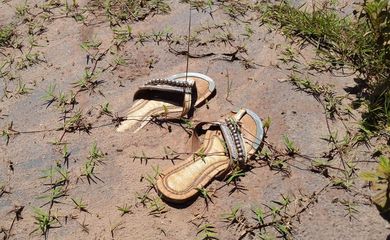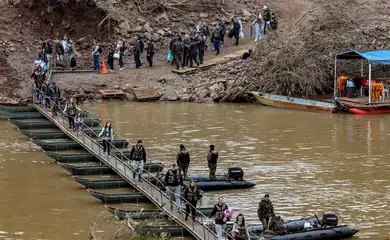Social G20 promotes global coordination of victims of climate crisis

Victims of the climate crisis from around the world will gather in Brazil during the Social G20 to help build an international movement. The goal is to establish an organization that can act cohesively in key global discussions, such as securing the rights of vulnerable populations and advocating for a just energy transition. This was explained by Sônia Mara Maranho, a member of the Movement of People Affected by Dams (MAB), in an interview with Agência Brasil.

The Social G20 will be held from November 14 to 16 in Rio de Janeiro, marking a new initiative introduced by the Brazilian government. This is the first time Brazil is chairing the G20 since 2008, when the group adopted its current format, which includes the 19 largest global economies, the European Union, and, more recently, the African Union. In previous G20 presidencies, civil society gatherings were held independently, parallel to the official program. With the Social G20, these meetings have been integrated into the official agenda crafted by Brazil.
A large part of the G20 Social program is made up of activities proposed and carried out by different organizations. The MAB, along with other groups, is involved in preparing two of these events, both scheduled for November 14. The first will address the theme of “Just, Sovereign, and Popular Energy Transition for the Sustainable Development of Humanity.” The other is entitled “Climate Crisis: Challenges for Affected Populations and Access to Public Policies.”
At the conclusion of the Social G20, a summary document will be presented and delivered to the governments of all G20 nations during the G20 Leaders' Summit, scheduled for November 18 and 19, marking the end of Brazil's presidency. South Africa will assume the presidency next.
According to Sônia Maranho, the two activities led by MAB are also viewed by the movement as preparation for the 30th United Nations Conference on Climate Change (COP30), which will gather global leaders in Belém, Pará state, in November 2025. Additionally, an international meeting of those affected by climate change is being planned for a few days prior to the conference.
In an interview with Agência Brasil, the activist emphasized the significance of popular struggles. She highlighted the mobilization against the Samarco dam collapses, which resulted in 19 deaths and widespread damage across Mariana and the entire Rio Doce basin in 2015, as well as the disaster caused by Vale, which claimed 272 lives in Brumadinho in 2019. Both tragedies occurred in the state of Minas Gerais. She also mentioned the National Policy on the Rights of People Affected by Dams (PNAB), approved by the Brazilian National Congress last year, which incorporates key popular demands.
The MAB member also expressed concern about rights violations involving new mineral exploration fronts. She mentioned the example of lithium, which has often been pointed out as fundamental to the energy transition due to its demand for battery production. According to her, the mineral is being extracted recklessly, with little regard for the well-being of those impacted.
“The populations must be heard. Those affected are not opposed to development. The problem lies in the centralization of decisions, where everything is treated as a commodity. How can we envision a fair energy transition under these circumstances? Natural resources continue to be mapped by these companies all over the world,” Maranho added.




